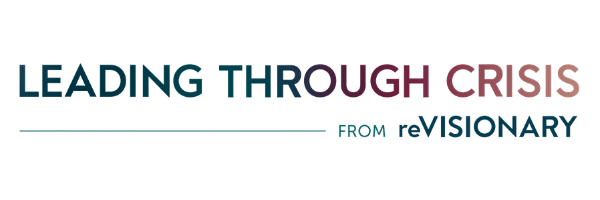Episode 41 - The Power of Pivoting in Business with Marie Incontrera
Listen to this episode on Apple Podcasts or Spotify
The concept of pivoting in business is so laden with assumptions and ideas that it’s hard to find someone who isn’t staunchly on one side of the fence or the other.
Some people/schools of thought believe that pivoting is a sign that you’re responsive to a changing market or customer conditions, that you’re committed to continuous improvement, and that you’re on a solid path to scaling and growing -- by not getting stuck in something that isn’t working, based on the feedback you’ve received.
Others will tell you that the need for a pivot denotes a lack of planning, forethought, solid execution and that it’s likely the wrong people are in the organization when a pivot is necessary.
Which side do you fall on?
Personally, I’m somewhere in the middle.
I don’t think that pivoting, in and of itself, is inherently a positive thing, nor do I think that it automatically denotes a lack of planning or strategy.
Organizations (teams and leaders) need to be flexible nowadays and that often means that pivots are inevitable.
If we are committed to continuous improvement, that means we are committing to consistently testing the ideas and assumptions we have and taking the data and information we gather from those tests into consideration as we design the next iteration of whatever it is we are working on.
I think those types of pivots are part and parcel of the scientific method at work in business and, quite frankly, that they are healthy and necessary these days.
I do also believe that if a business is pivoting on a regular basis, creating products or services that end up being completely scrapped on a consistent basis (before there’s any traction on them), or redesigning their entire business year after year, that could be an indication of a bigger issue that falls into the lack of planning/foresight/strategy category.
Like all things in life, there is nuance and context that matters, and looking at the individual situation will help determine whether a business is pivoting in a healthy, or unhealthy, manner.
When I spoke with this week's podcast guest, Marie Incontrera, a musician, brilliant creative and digital marketing consultant, based in New York, we got into the power of the pivot during challenging times.
If there is no willingness to change, course correct, or examine what’s happening to be open to a pivot if it is necessary, then there is a limited opportunity for growth, success and the solving of actual problems.
During our conversation, Marie pointed out something very interesting: creative people have a real advantage when it comes to leading through crises because they are accustomed to dealing with uncertainty in so many different ways.
While I had never, personally, thought about this myself, I realized immediately that what Marie was saying makes a lot of sense.
The more creative people are, the more creative they will be when solving problems, and the more likely they will be to recognize when it makes sense to pivot and embrace something new or to continue forward with the tried and true.
At the core of our conversation is the idea that we all need to be open, embrace our own and each other’s humanity, and discard that idea that experience and paths need to look a particular way.
One of the things that I took away from my conversation with Marie is the idea that leaders need to stop encouraging people to only come forward with solutions and not problems, as it doesn’t leave a lot of room for people to be human and messy.
When we give people permission to share the problems they are facing, we give them permission to show up as their whole selves and, ultimately, we may all find better solutions together.
-----
To learn more about Marie Incontrera, you can find her online at https://www.incontrera.com/. Or, by searching "Marie Incontrera" on all social platforms.
